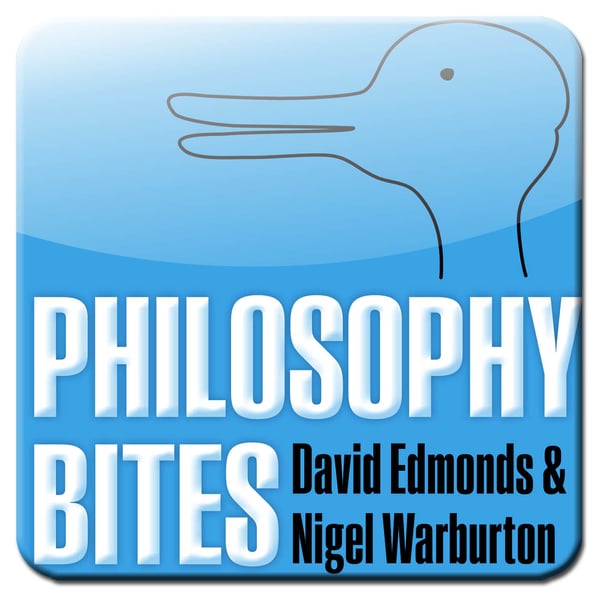Philip Goff on Galileo and Consciousness
Philosophy Bites
Nigel Warburton
4.6 • 2K Ratings
🗓️ 9 May 2020
⏱️ 19 minutes
🧾️ Download transcript
Summary
Philip Goff discusses some of Galileo's insights into the nature of matter. He then goes on to discuss his own view about consciousness, panpsychism. Goff believes that matter is conscious at some level.
Transcript
Click on a timestamp to play from that location
| 0:00.0 | This is philosophy bites with me Nigel Warburton and me David Edmonds. |
| 0:07.0 | If you enjoy philosophy bites please support us. |
| 0:10.0 | We are currently unfunded and all donations would be gratefully received. |
| 0:14.6 | For details go to W.W. philosophy bites.com. |
| 0:18.9 | Pansikism is the belief that all material things, however small, have an element of individual consciousness. |
| 0:26.5 | On the face of it, it sounds like a bizarre doctrine, but Philip Gough believes that it's better |
| 0:31.2 | than all the alternative theories about consciousness. |
| 0:34.6 | He argues that consciousness cannot be understood in physical scientific terms, and he traces |
| 0:40.7 | the origins of this position to the Italian polymath Galileo. |
| 0:44.8 | Philip Gough, welcome to Philosophy Bites. |
| 0:47.6 | Thank you very much, good to be here. |
| 0:49.6 | The topic we're going to focus on today is Galileo and consciousness. |
| 0:56.0 | Now Galileo is often thought of as an astronomer. |
| 0:59.0 | What's he got to say about consciousness? |
| 1:02.0 | Well Galileo is known as the father of modern science, |
| 1:05.8 | and I think it's because it's Galileo that really |
| 1:08.9 | shapes the philosophical foundations of the scientific revolution. |
| 1:14.2 | Galileo's declaration that mathematics was to be the language of the new science, |
| 1:19.7 | that the new science was to have a purely quantitative vocabulary. In many ways this is the |
| 1:25.2 | philosophical move that kick-starts the scientific revolution. What's less |
| 1:29.7 | focused on is the philosophical work Galileo had to do to get there and how as well as being a great scientist |
| 1:36.5 | he was also a great philosopher. |
... |
Please login to see the full transcript.
Disclaimer: The podcast and artwork embedded on this page are from Nigel Warburton, and are the property of its owner and not affiliated with or endorsed by Tapesearch.
Generated transcripts are the property of Nigel Warburton and are distributed freely under the Fair Use doctrine. Transcripts generated by Tapesearch are not guaranteed to be accurate.
Copyright © Tapesearch 2025.

